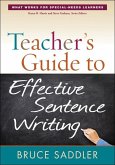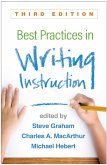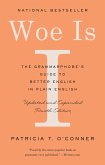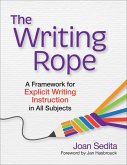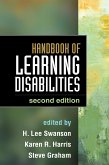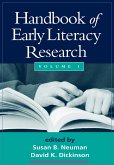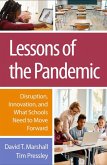Handbook of Writing Research
Herausgeber: MacArthur, Charles A; Fitzgerald, Jill; Graham, Steve
Handbook of Writing Research
Herausgeber: MacArthur, Charles A; Fitzgerald, Jill; Graham, Steve
- Gebundenes Buch
- Merkliste
- Auf die Merkliste
- Bewerten Bewerten
- Teilen
- Produkt teilen
- Produkterinnerung
- Produkterinnerung
"Subject Areas/Keywords: cognitive, Common Core standards, CCSS, Common Core State Standards, composition, difficulties, elementary, English language learners, genres, linguistics, literacy, new literacies, professional development, reading, research methods, secondary, sociocultural, teaching methods, theories, writers, writing development, writing instruction DESCRIPTION The definitive reference in the field, this volume synthesizes current knowledge on writing development and instruction at all grade levels. Prominent scholars examine numerous facets of writing from sociocultural,…mehr
Andere Kunden interessierten sich auch für
![Teacher's Guide to Effective Sentence Writing Teacher's Guide to Effective Sentence Writing]() Bruce Saddler (United States University at Albany)Teacher's Guide to Effective Sentence Writing37,99 €
Bruce Saddler (United States University at Albany)Teacher's Guide to Effective Sentence Writing37,99 €![Best Practices in Writing Instruction Best Practices in Writing Instruction]() Best Practices in Writing Instruction62,99 €
Best Practices in Writing Instruction62,99 €![Woe Is I Woe Is I]() Patricia T. O'ConnerWoe Is I15,99 €
Patricia T. O'ConnerWoe Is I15,99 €![The Writing Rope The Writing Rope]() Joan SeditaThe Writing Rope40,99 €
Joan SeditaThe Writing Rope40,99 €![Handbook of Learning Disabilities Handbook of Learning Disabilities]() Handbook of Learning Disabilities73,99 €
Handbook of Learning Disabilities73,99 €![Handbook of Early Literacy Research, Volume 1 Handbook of Early Literacy Research, Volume 1]() Handbook of Early Literacy Research, Volume 166,99 €
Handbook of Early Literacy Research, Volume 166,99 €![Lessons of the Pandemic Lessons of the Pandemic]() David T. MarshallLessons of the Pandemic35,99 €
David T. MarshallLessons of the Pandemic35,99 €-
-
-
"Subject Areas/Keywords: cognitive, Common Core standards, CCSS, Common Core State Standards, composition, difficulties, elementary, English language learners, genres, linguistics, literacy, new literacies, professional development, reading, research methods, secondary, sociocultural, teaching methods, theories, writers, writing development, writing instruction DESCRIPTION The definitive reference in the field, this volume synthesizes current knowledge on writing development and instruction at all grade levels. Prominent scholars examine numerous facets of writing from sociocultural, cognitive, linguistic, neuroscience, and new literacy/technological perspectives. The volume reviews the evidence base for widely used instructional approaches, including those targeting particular components of writing. Issues in teaching specific populations--including students with disabilities and English learners--are addressed. Innovative research methods and analytic tools are clearly explained, and key directions forfuture investigation identified"--
Hinweis: Dieser Artikel kann nur an eine deutsche Lieferadresse ausgeliefert werden.
Hinweis: Dieser Artikel kann nur an eine deutsche Lieferadresse ausgeliefert werden.
Produktdetails
- Produktdetails
- Verlag: Guilford Publications
- 2 New edition
- Seitenzahl: 464
- Erscheinungstermin: 13. Oktober 2015
- Englisch
- Abmessung: 261mm x 182mm x 32mm
- Gewicht: 1042g
- ISBN-13: 9781462522439
- ISBN-10: 1462522432
- Artikelnr.: 42413617
- Herstellerkennzeichnung
- Libri GmbH
- Europaallee 1
- 36244 Bad Hersfeld
- gpsr@libri.de
- Verlag: Guilford Publications
- 2 New edition
- Seitenzahl: 464
- Erscheinungstermin: 13. Oktober 2015
- Englisch
- Abmessung: 261mm x 182mm x 32mm
- Gewicht: 1042g
- ISBN-13: 9781462522439
- ISBN-10: 1462522432
- Artikelnr.: 42413617
- Herstellerkennzeichnung
- Libri GmbH
- Europaallee 1
- 36244 Bad Hersfeld
- gpsr@libri.de
Charles A. MacArthur, PhD, is Professor of Special Education and Literacy in the School of Education at the University of Delaware. His major research interests include writing development and instruction for struggling writers, development of self-regulated strategies, adult literacy, and applications of technology to support reading and writing. Currently he is coprincipal investigator of a research project evaluating a curriculum for college developmental writing courses based on self-regulated strategy instruction. He is coeditor of the Journal of Writing Research and serves on the editorial boards of several other journals. Dr. MacArthur has published over 100 articles and book chapters and coedited or coauthored several books, including Best Practices in Writing Instruction, Third Edition; Handbook of Writing Research, Second Edition; and Developing Strategic Writers through Genre Instruction. Steve Graham, EdD, is the Warner Professor in the Division of Educational Leadership and Innovation at Mary Lou Fulton Teachers College, Arizona State University. He is also Research Professor in the Learning Science Institute at the Australian Catholic University in Brisbane. Dr. Graham is editor of the Journal of Educational Psychology. He has coedited several books, including Handbook of Writing Research, Second Edition; Handbook of Learning Disabilities, Second Edition; and Best Practices in Writing Instruction, Second Edition; and is the coauthor of three influential Carnegie Corporation reports: Writing Next, Writing to Read, and Informing Writing. Dr. Graham has received numerous awards, including the Career Research Award from the Council for Exceptional Children (CEC), the Kauffman-Hallahan Distinguished Researcher Award from the CEC Division of Research, the Samuel A. Kirk Award from the CEC Division of Learning Disabilities, the Distinguished Researcher Award from the special education interest group of the American Educational Research Association (AERA), and the Wiederholt Distinguished Lecturer Award from the Council of Learning Disabilities. He is a fellow of the AERA and the International Academy for Research in Learning Disabilities. Jill Fitzgerald, PhD, is Research Professor and Professor Emerita at The University of North Carolina at Chapel Hill. A former primary-grades teacher and reading specialist, she conducts research on literacy issues for multilingual learners, understanding text complexity, and vocabulary measurement. Dr. Fitzgerald is a member of the Reading Hall of Fame, a Fellow of the American Educational Research Association (AERA), and a recipient of research awards from Phi Delta Kappa, the International Reading Association, and the AERA. With more than 100 publications, she is associate editor of the Journal of Educational Psychology and serves on the editorial boards of several other journals. She has also been a review panelist for the Office of Education, the Institute of Education, the National Institutes of Health, and the National Institute for Literacy.
Introduction
Charles A. MacArthur
Steve Graham
and Jill Fitzgerald I. Theories and Models of Writing 1. What Do Sociocultural Studies of Writing Tell Us about Learning to Write?
Charles Bazerman 2. Writing Research from a Cognitive Perspective
Charles A. MacArthur and Steve Graham 3. Writing Research from a New Literacies Lens
Donald J. Leu
David Slomp
Lisa Zawilinski
and Julie Corrigan II. Writing Development 4. Writing Process Theory: A Functional Dynamic Approach
Huub van den Bergh
Gert Rijlaarsdam
and Elke van Steendam 5. Understanding Planning in Text Production
Mark Torrance 6. A Sociocultural Perspective on Writing Development: Toward an Agenda for Classroom Research on Students' Use of Social Practices
Richard Beach
George E. Newell
and Jennifer VanDerHeide 7. After Writing
After School
Katherine Schultz
Glynda A. Hull
and Jennifer Higgs 8. The Development of Multileveled Writing Systems of the Brain: Brain Lessons for Writing Instruction
Karin H. James
R. Joanne Jao
and Virginia Berninger 9. From Language to Text: The Development and Learning of Translation
Michel Fayol 10. From Text to Language and Back: The Emergence of Written Language
Liliana Tolchinsky 11. Self-Efficacy Beliefs and Motivation in Writing Development
Roger H. Bruning and Douglas F. Kauffman 12. Self-Regulation and Writing: Meta-Analysis of the Self-Regulation Processes in Zimmerman and Risemberg's Model
Tanya Santangelo
Karen R. Harris
and Steve Graham 13. Relationships between Reading and Writing Development
Timothy Shanahan III. Instruction in Writing 14. Evidence-Based Practice and Writing Instruction: A Review of Reviews
Steve Graham
Karen R. Harris
and Amber B. Chambers 15. New Developments in Genre-Based Literacy Pedagogy
David Rose 16. Writing to Learn
Perry D. Klein
Nina Arcon
and Samanta Baker 17. Sociocultural Approaches to High School Writing Instruction: Examining the Roles of Context
Positionality
and Power
Michelle Nguyen Kwok
Exequiel Ganding III
Glynda A. Hull
and Elizabeth Birr Moje 18. Instruction in Evaluation and Revision
Charles A. MacArthur 19. Grammar Instruction
Richard Hudson 20. Argumentative Writing
Ralph P. Ferretti and Yueyue Fan 21. Computer-Based Writing Instruction
Laura K. Allen
Matthew E. Jacovina
and Danielle S. McNamara 22. The Role of Professional Development for Enhancing Writing Instruction
Sarah J. McCarthey and Cristin M. Geoghegan IV. Writing and Special Populations 23. Writing Development and Instruction for Students with Learning Disabilities: Using Diagnostic Categories to Study Writing Difficulties
Vince Connelly and Julie Dockrell 24. Writing Development and Instruction for English Language Learners
Alister Cumming 25. Teaching Writing in Culturally and Linguistically Diverse Classrooms
Valerie Kinloch and Tanja Burkhard V. Analytic Tools for Writing Research 26. Automated Writing Evaluation: An Expanding Body of Knowledge
Mark D. Shermis
Jill Burstein
Norbert Elliot
Shayne Miel
and Peter W. Foltz 27. Keystroke Logging in Writing Research: Analyzing Online Writing Processes
Luuk Van Waes
Mariëlle Leijten
Eva Lindgren
and ?sa Wengelin 28. Linguistic Analysis Tools
Pablo Pirnay-Dummer
Charles A. MacArthur
Steve Graham
and Jill Fitzgerald I. Theories and Models of Writing 1. What Do Sociocultural Studies of Writing Tell Us about Learning to Write?
Charles Bazerman 2. Writing Research from a Cognitive Perspective
Charles A. MacArthur and Steve Graham 3. Writing Research from a New Literacies Lens
Donald J. Leu
David Slomp
Lisa Zawilinski
and Julie Corrigan II. Writing Development 4. Writing Process Theory: A Functional Dynamic Approach
Huub van den Bergh
Gert Rijlaarsdam
and Elke van Steendam 5. Understanding Planning in Text Production
Mark Torrance 6. A Sociocultural Perspective on Writing Development: Toward an Agenda for Classroom Research on Students' Use of Social Practices
Richard Beach
George E. Newell
and Jennifer VanDerHeide 7. After Writing
After School
Katherine Schultz
Glynda A. Hull
and Jennifer Higgs 8. The Development of Multileveled Writing Systems of the Brain: Brain Lessons for Writing Instruction
Karin H. James
R. Joanne Jao
and Virginia Berninger 9. From Language to Text: The Development and Learning of Translation
Michel Fayol 10. From Text to Language and Back: The Emergence of Written Language
Liliana Tolchinsky 11. Self-Efficacy Beliefs and Motivation in Writing Development
Roger H. Bruning and Douglas F. Kauffman 12. Self-Regulation and Writing: Meta-Analysis of the Self-Regulation Processes in Zimmerman and Risemberg's Model
Tanya Santangelo
Karen R. Harris
and Steve Graham 13. Relationships between Reading and Writing Development
Timothy Shanahan III. Instruction in Writing 14. Evidence-Based Practice and Writing Instruction: A Review of Reviews
Steve Graham
Karen R. Harris
and Amber B. Chambers 15. New Developments in Genre-Based Literacy Pedagogy
David Rose 16. Writing to Learn
Perry D. Klein
Nina Arcon
and Samanta Baker 17. Sociocultural Approaches to High School Writing Instruction: Examining the Roles of Context
Positionality
and Power
Michelle Nguyen Kwok
Exequiel Ganding III
Glynda A. Hull
and Elizabeth Birr Moje 18. Instruction in Evaluation and Revision
Charles A. MacArthur 19. Grammar Instruction
Richard Hudson 20. Argumentative Writing
Ralph P. Ferretti and Yueyue Fan 21. Computer-Based Writing Instruction
Laura K. Allen
Matthew E. Jacovina
and Danielle S. McNamara 22. The Role of Professional Development for Enhancing Writing Instruction
Sarah J. McCarthey and Cristin M. Geoghegan IV. Writing and Special Populations 23. Writing Development and Instruction for Students with Learning Disabilities: Using Diagnostic Categories to Study Writing Difficulties
Vince Connelly and Julie Dockrell 24. Writing Development and Instruction for English Language Learners
Alister Cumming 25. Teaching Writing in Culturally and Linguistically Diverse Classrooms
Valerie Kinloch and Tanja Burkhard V. Analytic Tools for Writing Research 26. Automated Writing Evaluation: An Expanding Body of Knowledge
Mark D. Shermis
Jill Burstein
Norbert Elliot
Shayne Miel
and Peter W. Foltz 27. Keystroke Logging in Writing Research: Analyzing Online Writing Processes
Luuk Van Waes
Mariëlle Leijten
Eva Lindgren
and ?sa Wengelin 28. Linguistic Analysis Tools
Pablo Pirnay-Dummer
Introduction
Charles A. MacArthur
Steve Graham
and Jill Fitzgerald I. Theories and Models of Writing 1. What Do Sociocultural Studies of Writing Tell Us about Learning to Write?
Charles Bazerman 2. Writing Research from a Cognitive Perspective
Charles A. MacArthur and Steve Graham 3. Writing Research from a New Literacies Lens
Donald J. Leu
David Slomp
Lisa Zawilinski
and Julie Corrigan II. Writing Development 4. Writing Process Theory: A Functional Dynamic Approach
Huub van den Bergh
Gert Rijlaarsdam
and Elke van Steendam 5. Understanding Planning in Text Production
Mark Torrance 6. A Sociocultural Perspective on Writing Development: Toward an Agenda for Classroom Research on Students' Use of Social Practices
Richard Beach
George E. Newell
and Jennifer VanDerHeide 7. After Writing
After School
Katherine Schultz
Glynda A. Hull
and Jennifer Higgs 8. The Development of Multileveled Writing Systems of the Brain: Brain Lessons for Writing Instruction
Karin H. James
R. Joanne Jao
and Virginia Berninger 9. From Language to Text: The Development and Learning of Translation
Michel Fayol 10. From Text to Language and Back: The Emergence of Written Language
Liliana Tolchinsky 11. Self-Efficacy Beliefs and Motivation in Writing Development
Roger H. Bruning and Douglas F. Kauffman 12. Self-Regulation and Writing: Meta-Analysis of the Self-Regulation Processes in Zimmerman and Risemberg's Model
Tanya Santangelo
Karen R. Harris
and Steve Graham 13. Relationships between Reading and Writing Development
Timothy Shanahan III. Instruction in Writing 14. Evidence-Based Practice and Writing Instruction: A Review of Reviews
Steve Graham
Karen R. Harris
and Amber B. Chambers 15. New Developments in Genre-Based Literacy Pedagogy
David Rose 16. Writing to Learn
Perry D. Klein
Nina Arcon
and Samanta Baker 17. Sociocultural Approaches to High School Writing Instruction: Examining the Roles of Context
Positionality
and Power
Michelle Nguyen Kwok
Exequiel Ganding III
Glynda A. Hull
and Elizabeth Birr Moje 18. Instruction in Evaluation and Revision
Charles A. MacArthur 19. Grammar Instruction
Richard Hudson 20. Argumentative Writing
Ralph P. Ferretti and Yueyue Fan 21. Computer-Based Writing Instruction
Laura K. Allen
Matthew E. Jacovina
and Danielle S. McNamara 22. The Role of Professional Development for Enhancing Writing Instruction
Sarah J. McCarthey and Cristin M. Geoghegan IV. Writing and Special Populations 23. Writing Development and Instruction for Students with Learning Disabilities: Using Diagnostic Categories to Study Writing Difficulties
Vince Connelly and Julie Dockrell 24. Writing Development and Instruction for English Language Learners
Alister Cumming 25. Teaching Writing in Culturally and Linguistically Diverse Classrooms
Valerie Kinloch and Tanja Burkhard V. Analytic Tools for Writing Research 26. Automated Writing Evaluation: An Expanding Body of Knowledge
Mark D. Shermis
Jill Burstein
Norbert Elliot
Shayne Miel
and Peter W. Foltz 27. Keystroke Logging in Writing Research: Analyzing Online Writing Processes
Luuk Van Waes
Mariëlle Leijten
Eva Lindgren
and ?sa Wengelin 28. Linguistic Analysis Tools
Pablo Pirnay-Dummer
Charles A. MacArthur
Steve Graham
and Jill Fitzgerald I. Theories and Models of Writing 1. What Do Sociocultural Studies of Writing Tell Us about Learning to Write?
Charles Bazerman 2. Writing Research from a Cognitive Perspective
Charles A. MacArthur and Steve Graham 3. Writing Research from a New Literacies Lens
Donald J. Leu
David Slomp
Lisa Zawilinski
and Julie Corrigan II. Writing Development 4. Writing Process Theory: A Functional Dynamic Approach
Huub van den Bergh
Gert Rijlaarsdam
and Elke van Steendam 5. Understanding Planning in Text Production
Mark Torrance 6. A Sociocultural Perspective on Writing Development: Toward an Agenda for Classroom Research on Students' Use of Social Practices
Richard Beach
George E. Newell
and Jennifer VanDerHeide 7. After Writing
After School
Katherine Schultz
Glynda A. Hull
and Jennifer Higgs 8. The Development of Multileveled Writing Systems of the Brain: Brain Lessons for Writing Instruction
Karin H. James
R. Joanne Jao
and Virginia Berninger 9. From Language to Text: The Development and Learning of Translation
Michel Fayol 10. From Text to Language and Back: The Emergence of Written Language
Liliana Tolchinsky 11. Self-Efficacy Beliefs and Motivation in Writing Development
Roger H. Bruning and Douglas F. Kauffman 12. Self-Regulation and Writing: Meta-Analysis of the Self-Regulation Processes in Zimmerman and Risemberg's Model
Tanya Santangelo
Karen R. Harris
and Steve Graham 13. Relationships between Reading and Writing Development
Timothy Shanahan III. Instruction in Writing 14. Evidence-Based Practice and Writing Instruction: A Review of Reviews
Steve Graham
Karen R. Harris
and Amber B. Chambers 15. New Developments in Genre-Based Literacy Pedagogy
David Rose 16. Writing to Learn
Perry D. Klein
Nina Arcon
and Samanta Baker 17. Sociocultural Approaches to High School Writing Instruction: Examining the Roles of Context
Positionality
and Power
Michelle Nguyen Kwok
Exequiel Ganding III
Glynda A. Hull
and Elizabeth Birr Moje 18. Instruction in Evaluation and Revision
Charles A. MacArthur 19. Grammar Instruction
Richard Hudson 20. Argumentative Writing
Ralph P. Ferretti and Yueyue Fan 21. Computer-Based Writing Instruction
Laura K. Allen
Matthew E. Jacovina
and Danielle S. McNamara 22. The Role of Professional Development for Enhancing Writing Instruction
Sarah J. McCarthey and Cristin M. Geoghegan IV. Writing and Special Populations 23. Writing Development and Instruction for Students with Learning Disabilities: Using Diagnostic Categories to Study Writing Difficulties
Vince Connelly and Julie Dockrell 24. Writing Development and Instruction for English Language Learners
Alister Cumming 25. Teaching Writing in Culturally and Linguistically Diverse Classrooms
Valerie Kinloch and Tanja Burkhard V. Analytic Tools for Writing Research 26. Automated Writing Evaluation: An Expanding Body of Knowledge
Mark D. Shermis
Jill Burstein
Norbert Elliot
Shayne Miel
and Peter W. Foltz 27. Keystroke Logging in Writing Research: Analyzing Online Writing Processes
Luuk Van Waes
Mariëlle Leijten
Eva Lindgren
and ?sa Wengelin 28. Linguistic Analysis Tools
Pablo Pirnay-Dummer


